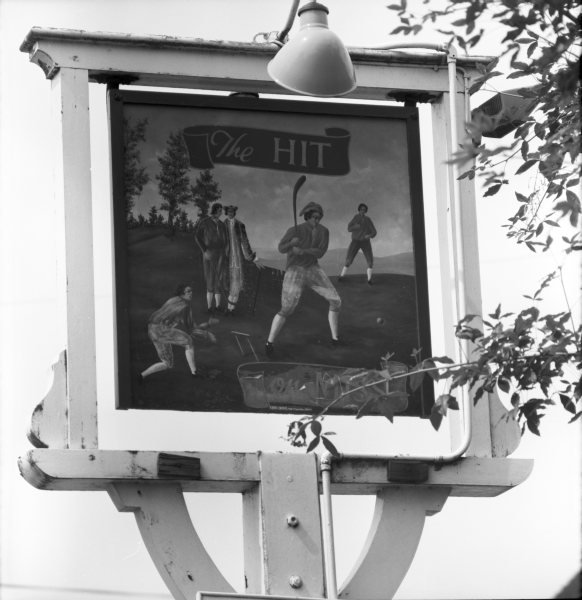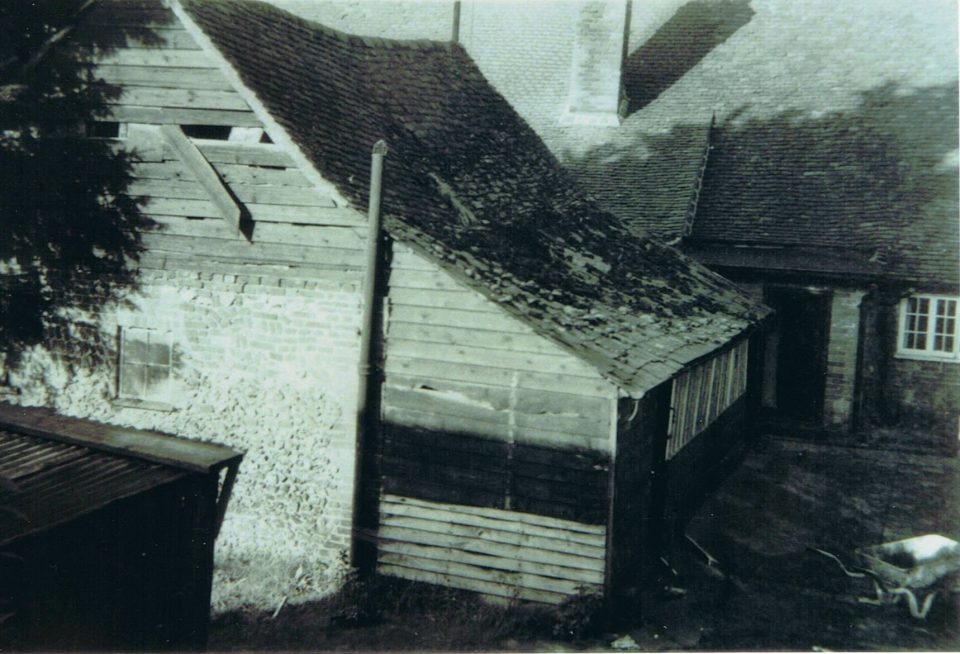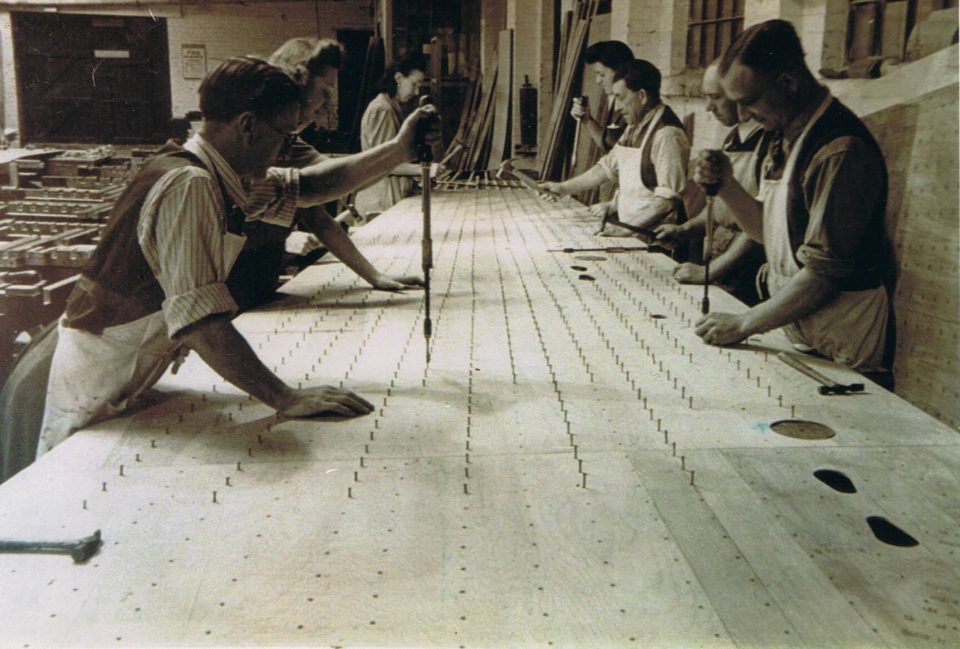Dancer and Hearne Brothers, furniture makers, of Penn Street.
Graces Guide, 30 August 2021. (Amended 11/2022)
In the 1860s William Hearne, a chair maker, and his wife Eliza, a lacemaker, took over the licence of the Hit and Miss pub, from James Taylor, the deeds to the Hit or Miss show that it was already a pub in 1798. There was a one-man workshop shed behind the pub where chairs or parts of chairs were made.
See Dancer & Hearne photo gallery:
By 1881 William had died and Eliza had married Samuel Dancer, from Beaconsfield. Samuel took over the Hit and Miss pub. He was recorded as “publican and chair factor”. Also living at the Hit and Miss were William Hearne’s son Alfred, age 20, a chairmaker. So it appears that Alfred was making chairs while Samuel sold them.
1895 The firm is first recorded in the 1895 trade directory. A photograph of that date shows 31 employees. The listing gives the firm’s location as ‘Penn Street and Holmer Green’. The Holmer Green factory, based in Factory Street (now Orchard Way), was used by the company until some time after 1939 but nothing more is known about it.
Dancer & Hearne grew steadily to become one of the biggest furniture factories area
1934 A series of famous photographs shows the Big Chair, a 6½-foot high Windsor wheelback chair made for the British Industries Fair.
1935 the firm took over a factory on Lindsay Avenue, High Wycombe, which it maintained until 1967. There were also premises at Fairmeadow Works, West Wycombe Road, High Wycombe, which were taken over by Chippy Heath in 1968.
By 1938 it had around 500 employees and was producing 450,000 chairs a year.
Late 1930s: orders were slow, Cecil Hearne played upon a connection with Geoffrey de Havilland the aircraft manufacturer (who had been born in Terriers on the north side of High Wycombe) and began making Tiger Moth aeroplane parts for the de Havilland firm.
WWII the Penn Street factory was given over completely to making parts for the De Havilland Mosquito The Lindsay Avenue site also made plane parts.
1949 Established the Ammanford factory in South Wales.
1952 Aircraft parts were made again when orders for chairs declined
1957 Ammanford factory closed
By the 1960s Dancer & Hearne was mainly producing wooden chairs for Government contracts and schools, and dining chairs for other furniture firms
1962-3 the company made losses; only small profits in later years.
1967 bought by Parker-Knoll. The new Production Manager at Penn Street found what he called “industrial anarchy” with out-of-date equipment and a “chaotic situation”.
1970 The Ministry of Education decided to abandon wooden chairs in favour of plastic and metal, depriving Dancer & Hearne of the core of its business. The company closed in 1970.
Graces Guide, 30 August 2021. (Amended 11/2022)



